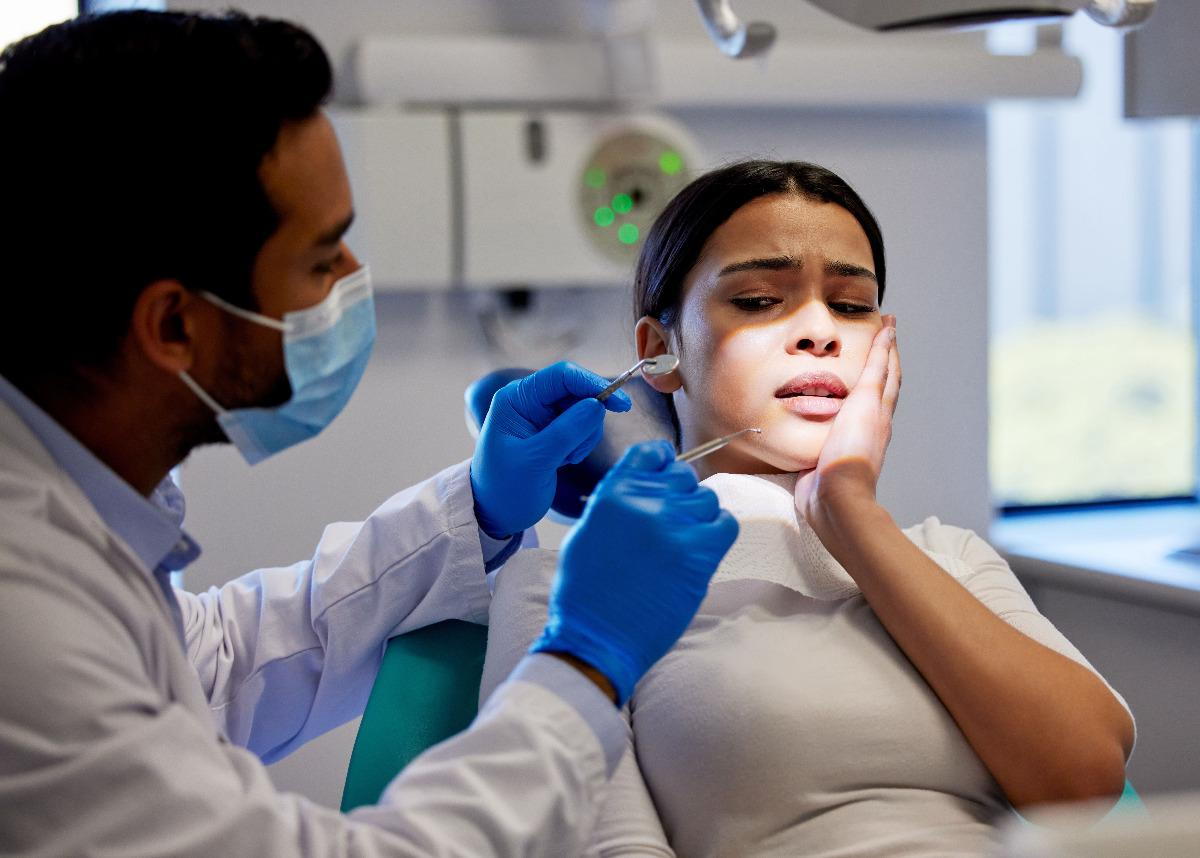
Summer is a time for travel, relaxation, and making memories with our loved ones. However, the excitement of a vacation can quickly turn into a nightmare if a dental emergency occurs while you are away from home. From a sudden toothache to a broken tooth, dental emergencies can be both painful and stressful, especially when you are far from your regular dentist. In this blog post, Cotswold Dentistry will discuss how families can survive dental emergencies during vacation and ensure a smooth recovery process.
Understanding Common Dental Emergencies on Vacation
When families embark on vacation, the last thing on their minds is encountering a dental emergency. Such incidents are not uncommon and can include a variety of situations that demand immediate attention.
Among these, toothaches stand out as a frequent complaint, often signaling underlying issues that can escalate without prompt care. Equally concerning are broken or chipped teeth, which can result from accidents or biting into hard substances, posing not only a cosmetic issue but also risking further damage or infection. A knocked-out tooth represents a critical emergency that requires swift action to increase the chances of successful reimplantation. Additionally, lost fillings or crowns are common dental dilemmas that vacationers might face, potentially leading to discomfort or sensitivity.
Such emergencies underscore the unpredictability of dental problems and the importance of being prepared. Recognizing the signs and understanding the immediate steps to take can mitigate the impact of these dental issues. It’s vital to be informed about the nature of these common dental emergencies, as knowledge equips individuals with the confidence to act decisively, ensuring that temporary setbacks do not overshadow the vacation experience.
Initial Steps to Take During a Dental Emergency
In the event of a dental emergency while on vacation, immediate and informed action is key to mitigating pain and preventing further complications.
Warm-water Rinse
The first course of action should involve carefully rinsing the mouth with warm water to cleanse the affected area, which can help remove any debris and reduce the risk of infection. If swelling is present, apply a cold compress to the outside of the cheek or mouth; this not only helps reduce swelling but also can alleviate pain.
Pain Medication
For discomfort, over-the-counter pain relievers may be taken according to the product's instructions. However, it's important to avoid placing aspirin or any medication directly against the gums near the aching tooth, as this can burn the gum tissue.
Save Tooth/Pieces
If the dental emergency involves a broken, chipped, or knocked-out tooth, try to locate and save any pieces of the tooth that have come loose. In cases of a knocked-out tooth, if possible, gently rinse the tooth with water and attempt to reinsert it into its socket, biting down on a piece of gauze or a tea bag to hold it in place. If reinsertion isn't feasible, the tooth should be kept moist by placing it in milk or a saline solution.
These initial steps are crucial while seeking professional emergency dental care, which should be done as promptly as possible to ensure the best possible outcome.
How to Find an Emergency Dentist Abroad
Navigating the challenge of finding an emergency dentist while abroad requires a strategic approach to ensure swift and effective care.
Start by seeking recommendations from the local hospitality industry; hotel concierges often have a list of emergency contacts, including dental practitioners who are accustomed to treating international visitors. In the absence of direct referrals, turn to the internet. Use search engines to locate nearby dental clinics, focusing on those that advertise emergency services or offer multilingual support to cater to international patients.
Another invaluable resource is the local or national dental association's website, which can provide a directory of certified emergency dentists. These professionals are typically vetted, offering a level of assurance regarding the quality of care provided.
In emergency situations, some embassies and consulates can also assist in connecting travelers with medical and dental services. While they may not have specific recommendations, they can offer guidance on navigating local healthcare systems or, in some cases, provide a list of clinics that have previously assisted their citizens.
When initiating contact with a potential emergency dentist, it's crucial to inquire about their credentials, experience with treating tourists, and any language proficiency if there is a language barrier. Additionally, confirming payment options in advance will streamline the process, ensuring that the focus remains on receiving the necessary dental care without delay.
What Information You'll Need for the Emergency Dentist
In the midst of an emergency, especially while abroad, having the right information at hand can significantly streamline your visit to an emergency dentist. It is essential to communicate effectively about your medical and dental history. This includes detailing any pre-existing conditions, medications you are currently taking, and any known allergies, particularly to medications or latex, which could influence the type of care you receive.
Additionally, be ready to provide a clear description of the symptoms and circumstances leading up to the dental emergency. This includes noting the duration of any pain or discomfort, the specific location of pain in your mouth, and any incident that might have precipitated the emergency, such as a fall or biting into something hard. Information about recent dental treatments or surgeries is also valuable as it offers insight into potential factors contributing to the current issue.
By arming your emergency dentist with these comprehensive details, you facilitate a more accurate assessment and efficient treatment, ensuring a quicker return to your vacation activities.
The Importance of Following Up with Your Regular Dentist
After navigating a dental emergency on vacation and receiving initial treatment, the next critical step is to schedule a follow-up appointment with your regular dentist at Cotswold Dentistry. This action ensures the continuity of care and addresses any underlying issues that may not have been fully resolved during emergency treatment. Your Cotswold dentist is familiar with your dental history and can provide a comprehensive evaluation to confirm that the emergency care you received aligns with your ongoing dental health needs.
This follow-up visit allows for the assessment of the healing process and ensures that any temporary treatments are properly replaced or adjusted. For example, if you received a temporary filling or crown while on vacation, your dentist at Cotswold Dentistry will determine the best course of action for a permanent solution. Additionally, this appointment serves as an opportunity to review and possibly adjust your dental care plan to prevent similar emergencies in the future.
Understanding the interconnectedness of your emergency dental care abroad with your long-term oral health goals reinforces the value of this follow-up at Cotswold Dentistry. By prioritizing this appointment, you affirm your commitment to maintaining optimal dental health. It also exemplifies proactive healthcare management, emphasizing the role of regular dental checkups in preemptively addressing potential issues. Engaging in this follow-through care is an essential component of ensuring your dental well-being, allowing for peace of mind as you continue to enjoy life’s adventures.
Maintaining Oral Health While Traveling
Ensuring the continuity of your oral health routine while on vacation is essential to prevent dental emergencies and safeguard your well-being. The disruption of daily schedules often leads to neglect of regular dental care practices, but with a little planning, this can be easily managed.
Incorporate dental care into your travel itinerary by setting reminders to brush twice a day and floss daily, as consistency is key to avoiding issues such as tooth decay and gum disease. When packing, include a dental care kit equipped with a toothbrush, fluoride toothpaste, dental floss, and mouthwash. This ensures you have the necessary tools to maintain oral hygiene, regardless of your location.
Additionally, consider the consumption of sugary beverages and snacks in moderation during your travels, as these can contribute to tooth decay and other dental problems. Being mindful of the foods you consume and ensuring you stay hydrated with water can significantly impact your dental health positively.
Implementing these practices will help you maintain your oral health on the road, reducing the risk of unexpected dental emergencies and allowing you to focus on enjoying your vacation.
The Role of Regular Checkups in Preventing Emergencies
The pivotal function of routine dental checkups at Cotswold Dentistry extends far beyond basic oral hygiene maintenance; it acts as a preventive barrier against the emergence of sudden dental crises. These appointments allow your dentist to conduct thorough examinations, identifying any issues such as early signs of tooth decay, gum disease, or minor damages that, left unchecked, could escalate into severe problems. Through professional cleanings, potential problem areas are addressed, reducing the likelihood of infections or other conditions that might necessitate urgent care while away from home.
Moreover, these sessions provide an opportunity for our dentists to offer personalized advice on enhancing daily oral care practices, tailoring recommendations to fortify your dental health against common vacation pitfalls. Embracing the proactive approach of regular dental evaluations at Cotswold Dentistry is instrumental in helping to avoid the inconvenience and discomfort of dental emergencies, thereby ensuring that vacations remain enjoyable and free from unexpected dental dilemmas.
Our caring team at the Cotswold Dentistry is here to serve patients in the Charlotte, NC area. Contact us today to make an appointment for a consultation. Your dental health and bright smile are our priorities!

